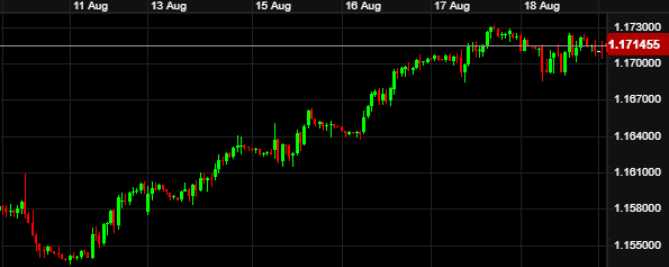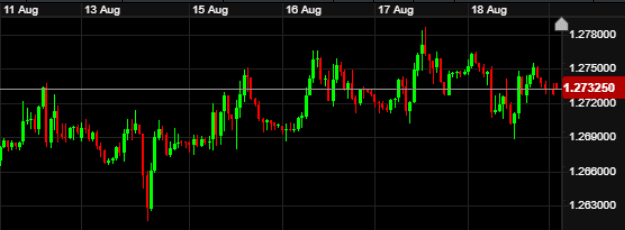ACM Update 21-08-23

Great news, UK inflation is slowing down. Not so great news, spending on the high street is slowing too, in the form of some dire retail sales numbers for July. The trusty British weather gets the blame again for the drop in footfall.
This week features a raft of manufacturing and services data, before the beginning of the central bankers’ summer get-together, at the Jackson Hole Symposium, in Wyoming.
Football almost came home over the weekend, but again not quite! A great performance throughout the whole tournament from the Lionesses and here’s hoping they can go one better next time.
The circular effects of inflation were on display last week, with a range of figures displaying the current and lagged impacts of the cost of living squeeze. The week started with unemployment numbers for the UK, which showed unemployment had increased back to 4.2%, as well as those claiming benefits being higher than expected last month.
Perhaps most importantly though was wage growth increasing at its fastest rate on record. The increase of 8.2% also marked the first time since September 2021 that wages had outrun inflation. The numbers led to an early week GBP rally, as the second round effects of wage growth could well be higher inflation, thus fuelling speculation of UK interest rates having to remain higher for longer.
However, inflation numbers themselves (released on Wednesday) saw a drop from 7.9% last month, to 6.8% in the July year on year numbers. Andrew Bailey commented that their policy action is now starting to take effect, however a lot of the drop was arguably down to supply-side factors such as the big drop off in energy prices in July.
Perhaps more concerning considering the wage growth statistics, was the fact that retail sales in July fell by -1.2%, their biggest month on month drop since October last year. Clearly UK consumers don’t feel like they have more to spend, or are recovering the costs of price increases over the last 18 months. Either way, the Bank of England remain walking the economic tightrope.
The Pound enjoyed a buoyant few days against the Euro, up just over 1% on the week and its highest in a month by the close on Friday. See the weekly moves in the chart below:

Eurozone data itself was pretty thin on the ground, also taking into the equation that Tuesday was a bank holiday in a number of member states. As eluded to recently, the usually robust German economy has been very much the problem child of late. Stagnant growth and high inflation has brought me close to dragging the term stagflation out of its recent hiatus.
The German economy is struggling on though and recent German ZEW figures released last week showed “less pessimism” than had been expected. Investors and analysts still see tough market conditions, but not as bad as last month, nor as bad as had been forecast for this.
Overall Eurozone inflation came in at 5.3% (year on year), whilst trade balance and industrial production figures fared better than had been expected. If the economy in Germany can recover promptly, the Euro may have slightly better fortunes. That we find out more on this week. As it is currently though, the Euro lost over 1% versus the Dollar and GBP last week.
The minutes from the latest Federal Reserve meeting made an appearance on Wednesday, with inflation (naturally) still the hot topic. Most Fed members remain concerned that inflation wont necessarily continue to recede, meaning further rate increases will be needed. The Dollar saw some midweek gains off the back of this news.
That said though, there did seem to be more split opinion between members than there has been in recent meetings. The Fed will have a further round of September data to digest before they make their next policy decision.
In other Dollar data, US retail sales demonstrated a fourth month in a row of gains, this time almost doubling the estimate. The US now seems destined to avoid the dreaded “hard landing” for their economy, with inflation cooling, high street spending strong and unemployment claims (also released last week) remaining stable.
GBP-USD yo-yoed based on the above releases last week, but broadly ended up within 0.3% of where it started the week, circa 1.27. The ups and downs of the week can be seen in the chart below.

In other market events, GBP-AUD continued its rise towards the 2.00 mark last week. The minutes from the latest Reserve Bank of Australia meeting showed the consensus is inflation is slowing positively and the jobs market seems to be strengthening. The latter was contradicted though by the latest unemployment numbers.
Inflation in Canada jumped back up to 3.3% in July. This was largely due to a spike 12 months ago in fuel prices now out of the annualised data. It does still increase the prospects of another interest rate rise in the short term however.
The Reserve Bank of New Zealand held interest rates for a second meeting in a row. The committee do have concerns about a slowdown in the Chinese economy, with Beijing being the country’s biggest trading partner.
Monday – Rightmove House Price Index (00:01 UK time), German PPI data (07:00)
Tuesday – Eurozone Current Account Balance (09:00)
Wednesday – Manufacturing & Services data Australia/Japan/Eurozone/UK/US (all day)
Thursday – Jackson Hole Symposium – Day1, US Unemployment Claims (13:30)
Friday – Jackson Hole Symposium – Day2, German Final GDP (exp 0.0%, 07:00), Jerome Powell speech (15:05), Christine Lagarde speech (20:00)
A quick reminder to our overseas clients, that Monday 28th August is a UK bank holiday, so our offices will be closed for the day.
With data releases relatively thin on the ground this week, much of the focus of markets will be on the words of chairs Powell and Lagarde in their Jackson Hole Symposium speeches on Friday. Both parties still seem to believe that inflation needs further taming in their respective economies, despite recent progress.
The Jackson Hole event draws economic forecasts, predictions and analysis from far and wide, so expect the latter half of the week especially to see plenty of movement. Meanwhile the ongoing debate of “will the German economy remain in recession”, should be settled once and for all on Friday morning. A growth of 0.0% is forecast, any less and it will be a third negative quarter in a row.
Have a great week.